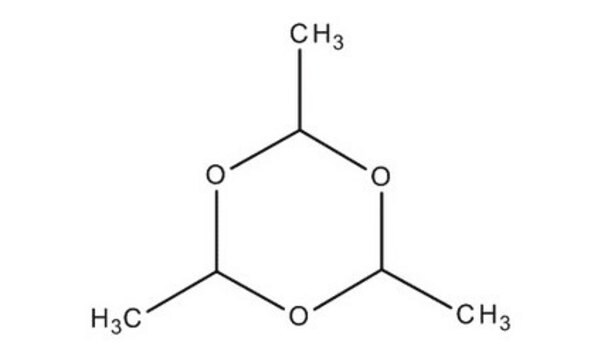CRM72839
O-Ethyl O-(4-nitrophenyl) phenylphosphonothioate
certified reference material, TraceCERT®, Manufactured by: Sigma-Aldrich Production GmbH, Switzerland
Synonyme(s) :
O-Ethyl O-(4-nitrophenyl) phenylphosphonothioate
About This Item
Produits recommandés
Qualité
certified reference material
TraceCERT®
Niveau de qualité
Gamme de produits
TraceCERT®
Durée de conservation
limited shelf life, expiry date on the label
Fabricant/nom de marque
Manufactured by: Sigma-Aldrich Production GmbH, Switzerland
Format
neat
Température de stockage
2-8°C
Chaîne SMILES
CCOP(=S)(Oc1ccc(cc1)[N+]([O-])=O)c2ccccc2
InChI
1S/C14H14NO4PS/c1-2-18-20(21,14-6-4-3-5-7-14)19-13-10-8-12(9-11-13)15(16)17/h3-11H,2H2,1H3
Clé InChI
AIGRXSNSLVJMEA-UHFFFAOYSA-N
Vous recherchez des produits similaires ? Visite Guide de comparaison des produits
Description générale
Certified content by quantitative NMR incl. uncertainty and expiry date are given on the certificate.
Download your certificate at: http://www.sigma-aldrich.com
EPN is a non-systemic organophosphate insecticide that inhibits the activity of acetylcholinesterase (AChE) and causes hyper excitation. Activated by contact and ingestion, it is used for protection against lepidopteran and other leaf-eating larvae.
As per Regulation (EC) No. 1107/2009, repealing directive 91/414/EEC, EPN is not approved for use in the European Union as a plant protection agent.
Application
EPN CRM may find the following uses:
- Development of a method to analyze 142 insecticide residues in weed and agricultural crops samples by dispersive solid-phase extraction (d-SPE) extraction and liquid chromatographic-mass spectrometric determination (LC-MS)
- Simultaneous analysis of eight pesticide residues in green tea leaves and infusion samples by gas chromatography (GC) micro electron capture detector (μECD), followed by a confirmation using GC/tandem mass spectrometry (GC/MS/MS)
- Employing thin-layer chromatography/direct analysis in real-time time-of-flight mass spectrometry (TLC/DART-TOFMS) along with isotope dilution technique for the determination of organophosphorus insecticides in dumpling and grapefruit samples
- Multi-analysis of 131 pesticide residues in different types of tea samples by dispersive solid-phase extraction (d-SPE) and gel permeation chromatography-gas chromatography-tandem mass spectrometry (GPC-GC-MS/MS)
- Qualitative and quantitative analysis of 412 pesticide residues from different chemical classes in cotton samples using GC-MS/MS and LC-MS/MS
- Investigate the presence of 160 pesticide residues simultaneously in chamomile, thyme, and marjoram samples by GC-MS/MS
Produits recommandés
Informations légales
Vous ne trouvez pas le bon produit ?
Essayez notre Outil de sélection de produits.
Mention d'avertissement
Danger
Mentions de danger
Conseils de prudence
Classification des risques
Acute Tox. 1 Dermal - Acute Tox. 2 Oral - Aquatic Acute 1 - Aquatic Chronic 1
Code de la classe de stockage
6.1A - Combustible acute toxic Cat. 1 and 2 / very toxic hazardous materials
Classe de danger pour l'eau (WGK)
WGK 3
Point d'éclair (°F)
Not applicable
Point d'éclair (°C)
Not applicable
Faites votre choix parmi les versions les plus récentes :
Certificats d'analyse (COA)
Vous ne trouvez pas la bonne version ?
Si vous avez besoin d'une version particulière, vous pouvez rechercher un certificat spécifique par le numéro de lot.
Déjà en possession de ce produit ?
Retrouvez la documentation relative aux produits que vous avez récemment achetés dans la Bibliothèque de documents.
Notre équipe de scientifiques dispose d'une expérience dans tous les secteurs de la recherche, notamment en sciences de la vie, science des matériaux, synthèse chimique, chromatographie, analyse et dans de nombreux autres domaines..
Contacter notre Service technique

